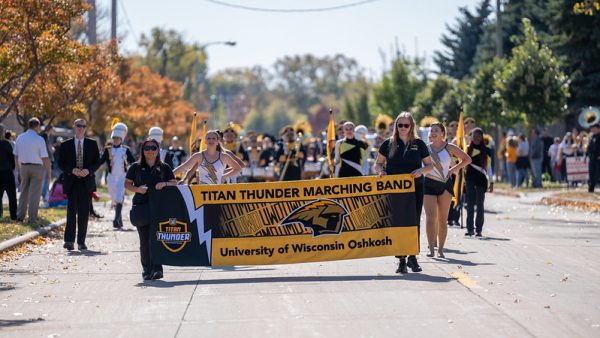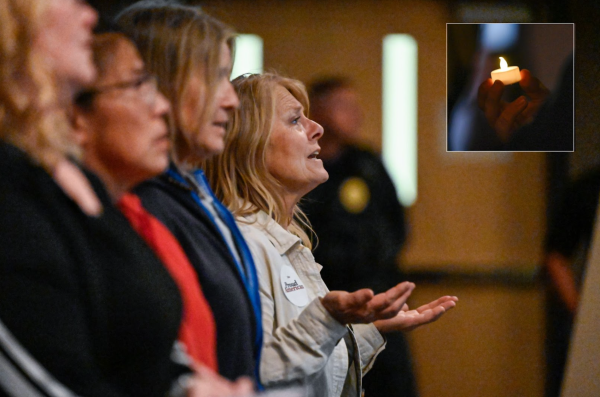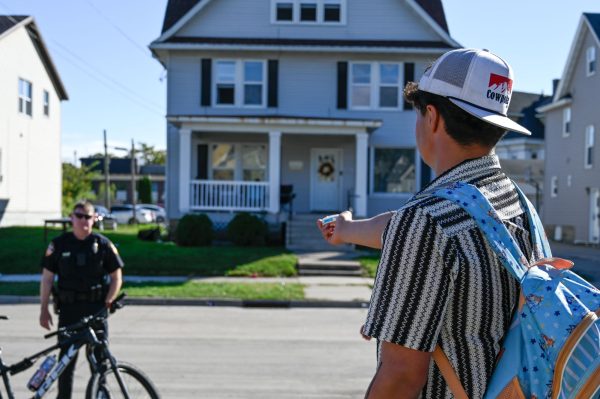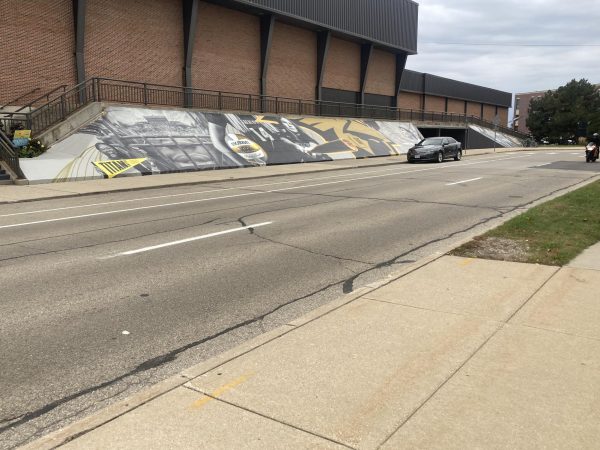Beware the Red Zone: When campus sexual assaults are highest
Part 1 in a Series
While many students use the first weeks of school to settle in, UW Oshkosh officials warn those weeks are also some of the most dangerous for students new to campus.
The first six weeks of the school year are known as the “Red Zone,” because there are more sexual assaults on college campuses over that period than any other time during the year.
The Department of Justice identified the time between students’ arrival on campus and Thanksgiving break as the period when a student is the most likely to be assaulted, according to the UW Oshkosh’s Title IX webpage.
Over 50% of college sexual assaults happen in August, September, October and November, according to University Police.
New students are most vulnerable during that time because many are still trying to learn the area, UP Capt. Chris Tarmann noted.
To minimize the risk of the Red Zone, UP will have an increased presence in known areas of vulnerability on and near campus.
Tarmann said police use data compiled over the last few years to pinpoint areas where students have a greater likelihood of being assaulted.
“We want [campus police] to spend specific amounts of time in vulnerable areas,” Tarmann said. “The goal is really to get them in a space so that people who are trying to target our vulnerable population at that time see us.”
Campus police will also be more strictly enforcing alcohol violations during the Red Zone.
“Strict enforcement doesn’t mean no tolerance, it just means we have removed a lot of the gray area for officers,” Tarmann said.
Officers are encouraged to schedule a next day follow-up for any student who received an underage drinking citation. Police are also required to schedule next day follow ups with students who became incapacitated from alcohol consumption.
The follow ups are designed to give students a better understanding of what they did wrong and what could have been done differently, Tarmann noted.
The police department acknowledges that underage drinking happens on college campuses, but it’s looking to minimize the risks of alcohol consumption.
“If it’s still going to happen, then let’s figure out a way that we can be in there and keep people safe as that stuff is happening,” Tarmann said.
While the police have a plan in place to reduce the risk of the “Red Zone,” Tarman noted students have a role to play. He believes students should be active bystanders.
UWO is holding Bystander Intervention Workshops each week throughout the “Red Zone.” The trainings are designed to give students the tools they need to intervene before a situation turns dangerous.
Counseling Center Associate Director Veronica Warren said students witnessing something dangerous or illegal have two choices: they can either be a passive bystander or an active bystander.
“Passive in the sense that they’re not doing anything, they don’t know what to do, and then an active bystander is someone who does take the initiative to do something,” Warren said at a recent training.
She added being an active bystander can be as simple as helping someone who slipped on ice.
The workshop breaks bystander intervention into five phases, which are noticing something’s a problem, recognizing the problem, taking responsibility, knowing how to help and acting.
Warren believes that in order to be an active bystander, “you have to be able to put the phone away and pay attention to what’s going on around you.”
Warren said being an active bystander isn’t the solution to changing rape culture, but it’s a step in the right direction.
For those who have experienced sexual assault, UWO has multiple resources on campus to help victims navigate their lives after the incident.
Campus Victim Advocate Ciara Hill provides university, medical and legal advocacy for sexual assault victims, allowing them to better understand their options after a sexual assault.
“I use personal advocacy using a trauma informed care model to help them navigate through the different systems that can be affected with sexual violence,” Hill said.
Hill is a confidential source and won’t disclose information to anyone without prior consent.
Another option is Sexual and Interpersonal Violence Prevention Coordinator Gabrielle Schwartz who is a confidential resource, meaning she does not have to share reports of sexual misconduct to the University Title IX Office.
“As an advocate, I work directly with students who have experienced incidences of sexual violence, interpersonal violence, harassment, and stalking,” Schwartz said. “I help students process their options and connect them with campus and community resources after a traumatic experience.”
Schwartz said sexual violence is a community issue that impacts each and every one of us.
“Whether we know it or not, we all know a survivor,” she said.







